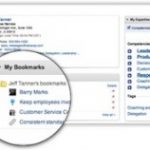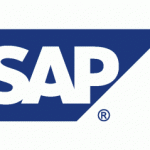EU Ruling on Software Reselling Will Have Wide Impact on the Industry
The ruling in July by EU courts on the re-selling of software will have a wide ranging impact on the industry, both for software developers and consumers alike.
The ruling came after US giant Oracle tried to stop the German software reseller Usedsoft from selling licenses for software that the consumer could then download from Oracle’s site. The Court of Justice of the European Union has ruled that the original right of distribution for the software is extinguished in the first sale of the product.
The ruling does not affect the laws on the copying of software, as reflected in the Usedsoft business model, the original owner is obliged to delete their copy and any other copies made on completion of the license sale to a third party.
Essentially this makes digitally acquired software as transferable as pre-loved CDs at a market stall and will probably lead to the development of a bigger second-hand software industry.
The ruling also reinforces the concept that digital products, although not existing in a hard format such as a DVD or CD-ROM, have a resale value.
When the ruling was first announced, users of online game distributors such as Steam rejoiced in the idea that their personal catalogue of downloaded games would be worth something. Steam, a site where account holders can download games for as little as €1, was quick to respond to the new rules by changing their terms of sale. Instead of selling users a license to their own copy of the software, Steam now terms the sale as the purchase of a subscription, for the use of a corporate-owned library of games.
Developers are yet to respond with what some expect to be a hike in prices for new software. Others might withdraw from the European region because they don’t want their games to be resold. More certain is that developers will change the way their products are marketed. For example, the mobile apps industry may start to offer apps as a service rather than via the purchase of a license.
Another way around the court decision is for software developers to redefine their products as content rather than software applications. Ebook publishers are not affected by the ruling, as well as the games publishers who already market their products as content. We can expect more games developers to follow suit in the future.
Indradeep Bhattacharya, a lawyer with legal firm Pinsent Masons points out an important detail in the ruling,
“The court only refers to software that is sold for continuous use. So it wouldn’t apply to software that only allows access for a limited time. As a result, we may very well see a change in the way apps or games are marketed, possibly through cloud networks or where access is limited to a set length of time.”
Software publishers may develop methods of preventing the transfer of the original license, which under the EU law, would be illegal. But anything in this highly competitive and constantly evolving industry, might be possible in the near future.









